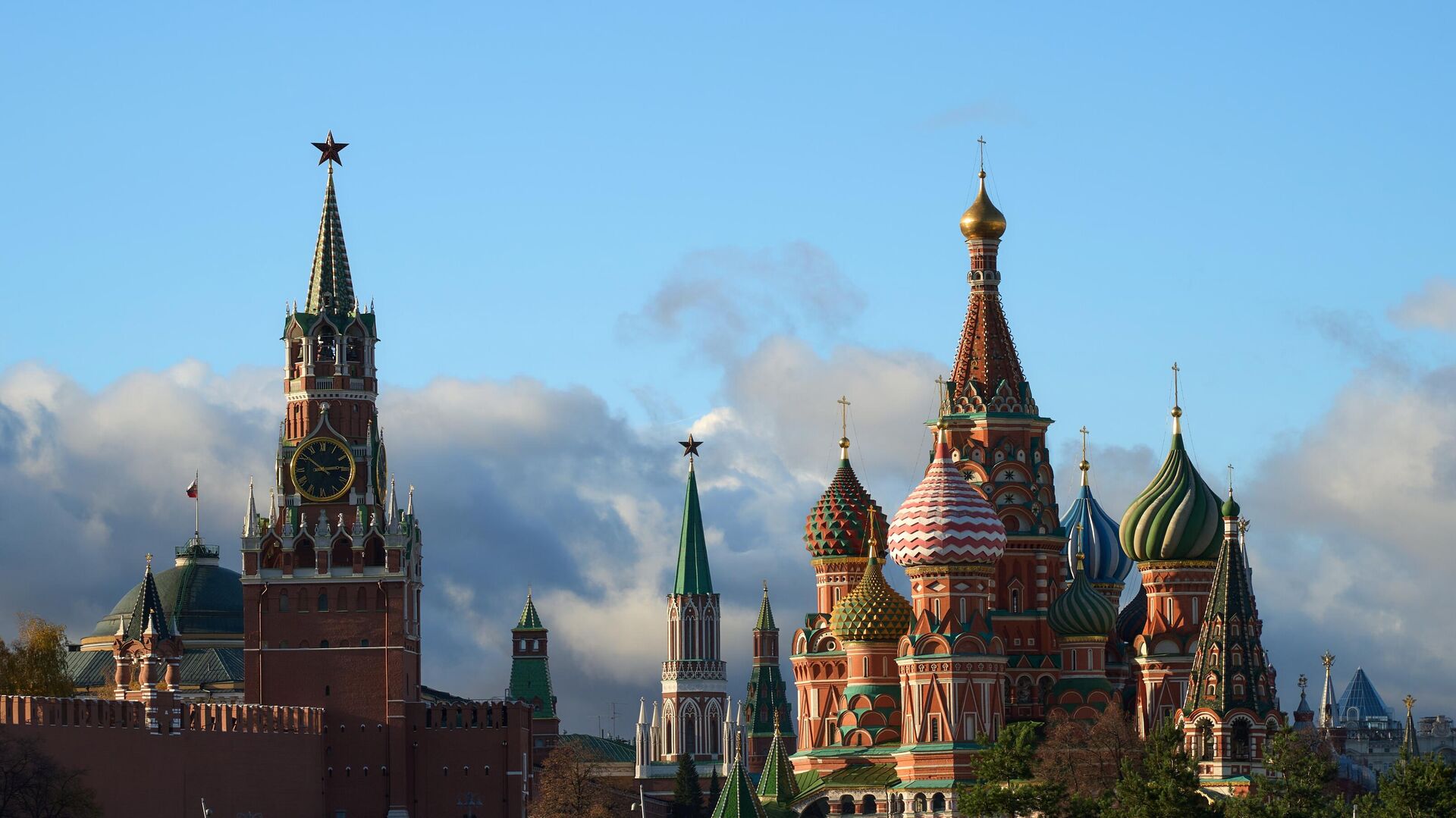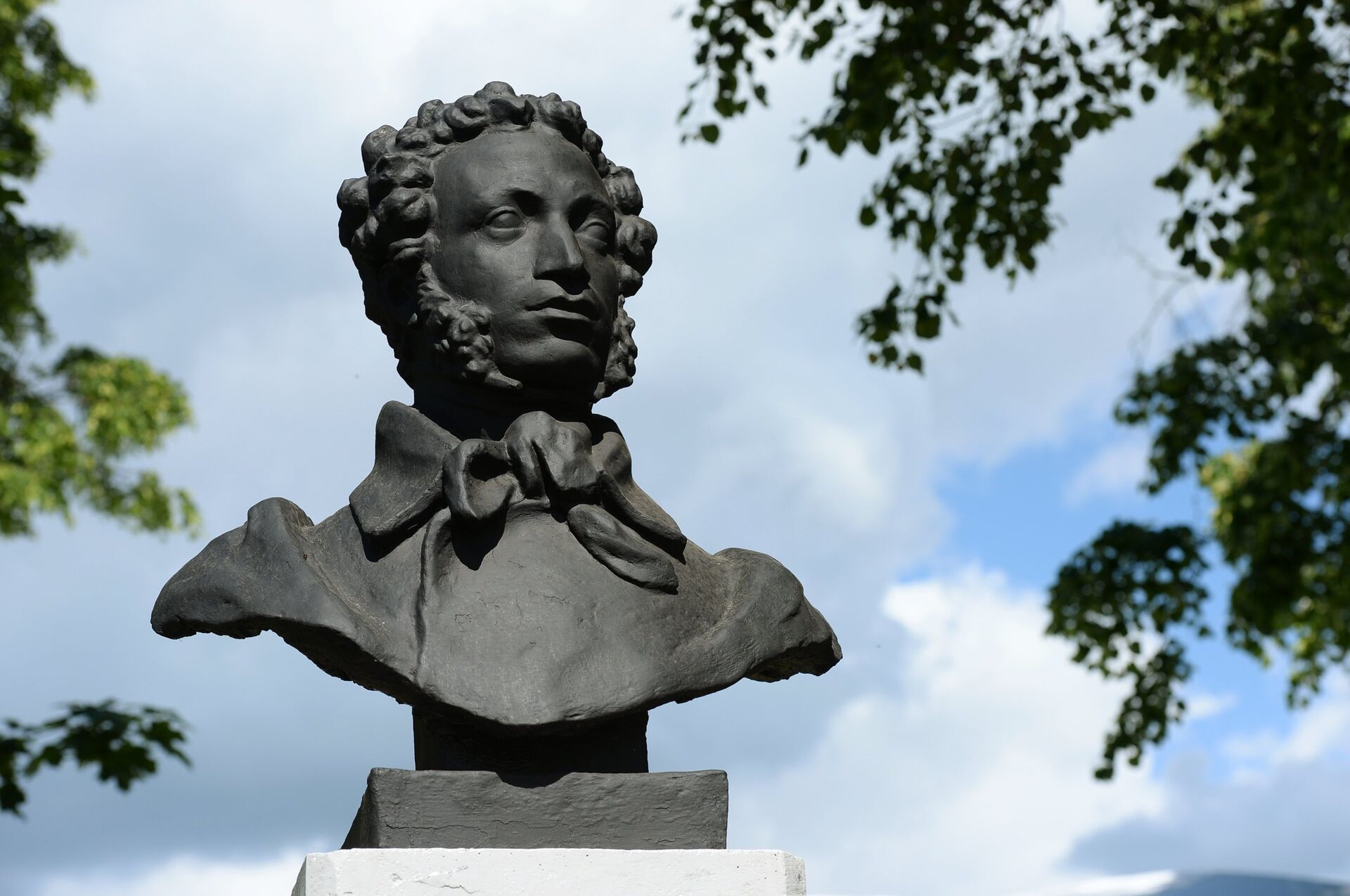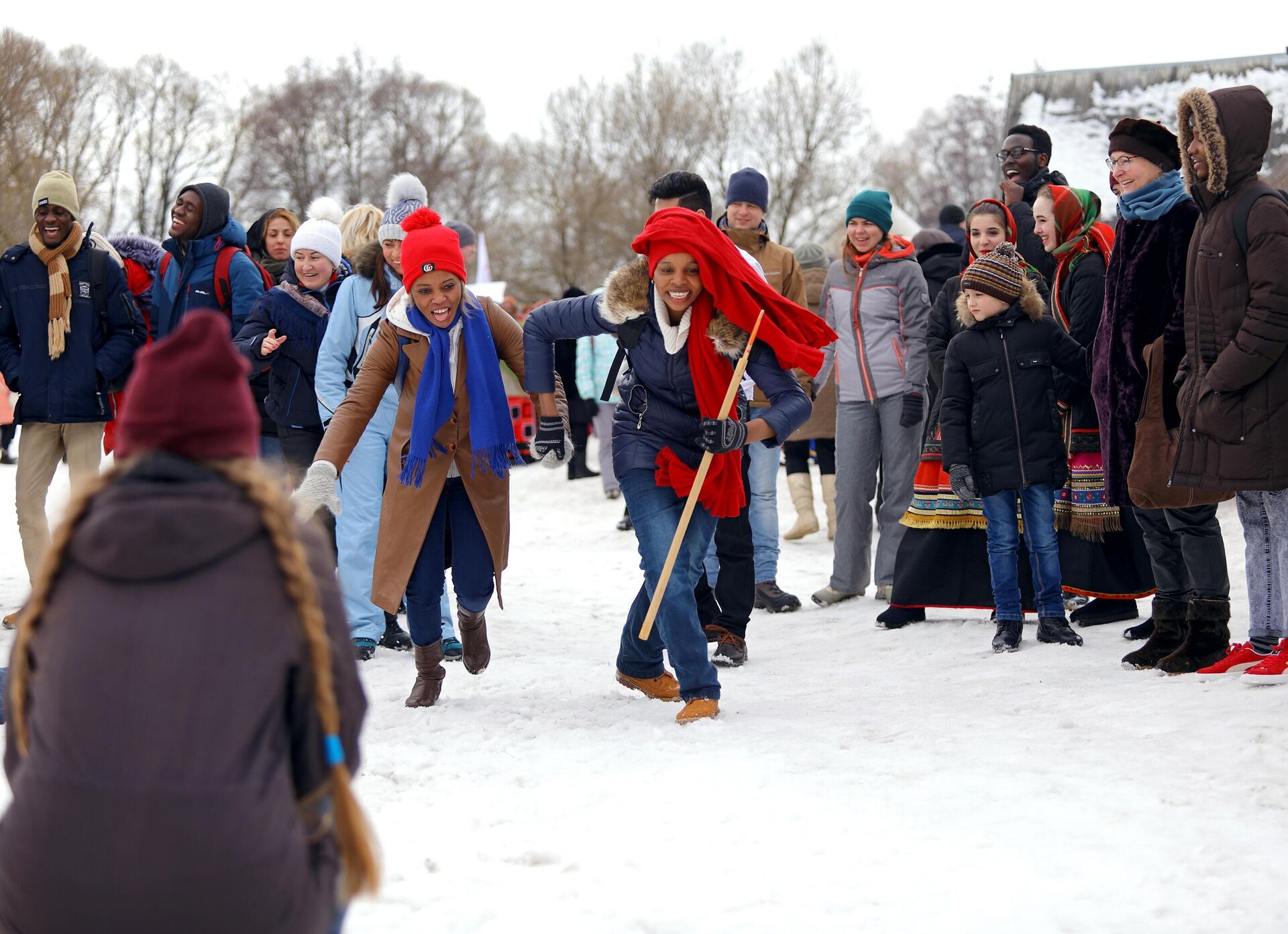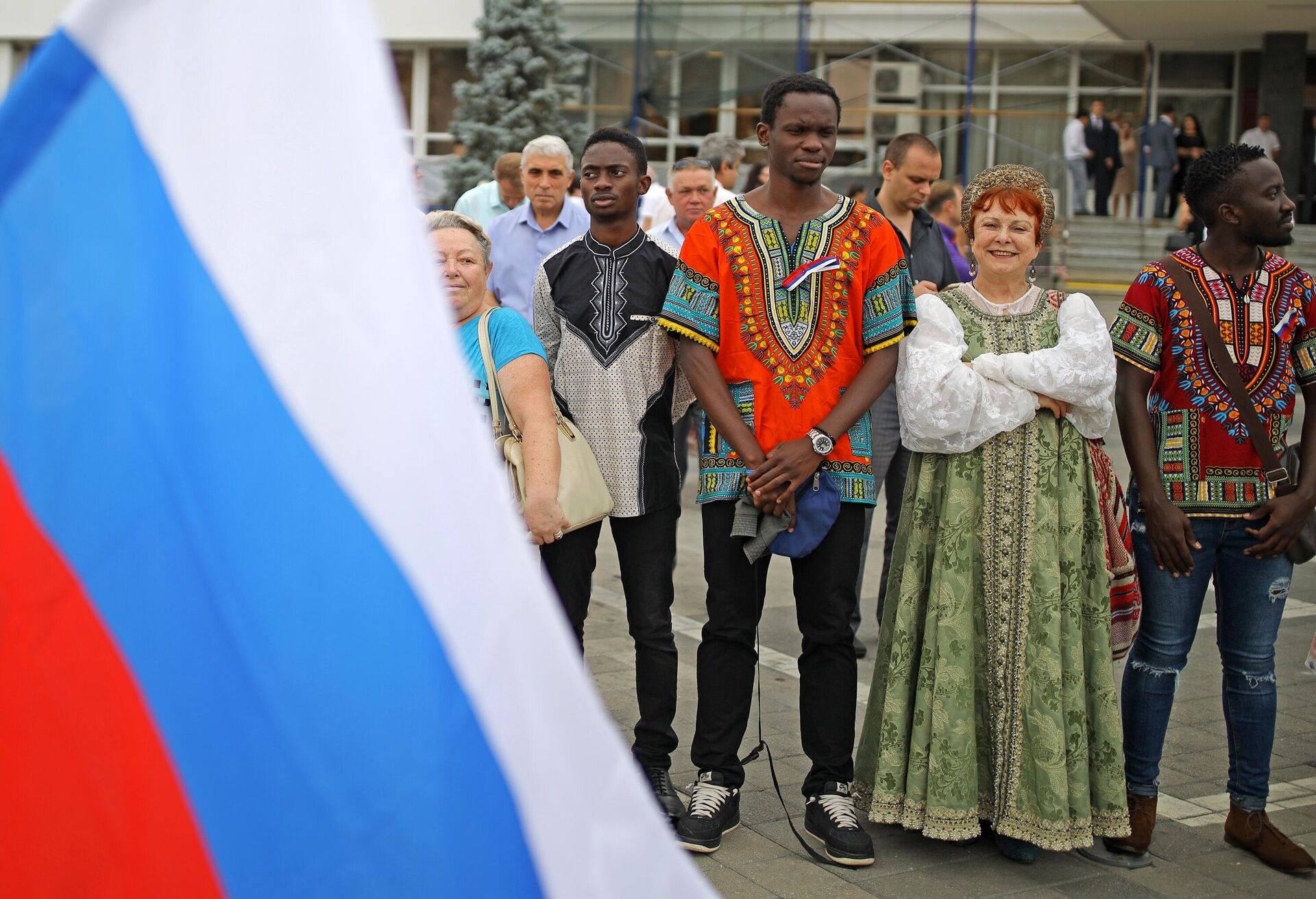Our Culture Can't Be Canceled: Language Program Chief Explains Why Russian Popular Among Foreigners
14:01 GMT 02.08.2022 (Updated: 13:36 GMT 04.08.2022)

© Sputnik / Alexey Danichev
/ Subscribe
With 258 million speakers, Russian is one of the most spoken languages globally. As such, it is not surprising that a giant number of people across the globe are seeking to learn it, entering the world of fascinating art with countless opportunities.
During the Russia-Africa Youth Public Forum, which took place on July 26-28 with support from the Russian Presidential Grants Fund, Sputnik interviewed Svetlana Ulyanova, head of the Project Management Department of the Pushkin state Russian Language Institute, curator of the ‘World Russian Language Ambassadors’ Program. In the interview, she explained why people across the globe chose to learn Russian and what exactly makes Russian culture so great.
Sputnik: Why is it important to promote Russian language learning in foreign countries?
Svetlana Ulyanova: Vitaly Grigorievich Kostomarov, the founder of our Pushkin state Russian Language Institute, used to quote [Anton] Chekhov: “The more languages you know, the more you are a human being.” It was Kostomarov who proposed and developed the methodology of teaching Russian as a foreign language, that is, teaching it to foreigners - because it is a completely different story than teaching it to native speakers.
The Russian language is truly beautiful, interesting, fascinating. We have an amazing culture, a very interesting literature. You can experience Chekhov, Tolstoy in all their beauty only in their original language. So, there is an opportunity to truly understand what our great writers wrote about.

A monument to writer and poet Alexander Pushkin in the Mikhailovskoye Pushkin State Memorial Museum-reserve of History, Literature and Natural Landscape.
© Sputnik / Sergey Pyatakov
/ Sputnik: Why is intercultural dialogue important, especially now, in the current political situation, between Russia and Africa, and Russia and other regions?
Svetlana Ulyanova: Cultural dialog has always been important, as evidenced by the idea of learning the Russian language through culture and the concept of “linguocountry studies”, which originated at the Pushkin Institute. After all, the Russian language is not just grammar and spelling rules. It is literature, art, and finally cuisine that form an understanding of the national character and the Russian language in particular. When we teach Russian to foreigners, we get engaged in a big dialog of cultures. Sometimes students from different continents study in the same group, and Russian becomes their only shared language. In the learning process, they also share part of their culture with us.
Our volunteers [participate], for example, in the program ‘Ambassadors of the Russian language in the world’, a program carried out by the Pushkin Institute with the support of the Ministry of Science and Higher Education of Russia. We pay a lot of attention to intercultural communication. Otherwise, for example, the children we teach abroad would have no interest when we talk only about ourselves.
We're really interested in learning more about how people live in other countries, interested in learning about them and to really share our cultural moments with each other. That's always interesting. And speaking again about Russian ambassadors, they have the opportunity to learn more about how the whole world lives, to gain new knowledge. That is why we, in our expeditions, always pay great attention to intercultural dialogue. And the volunteers not only promote the Russian language, but they themselves learn more and more about the traditions of other countries.

Festival of folk culture "Malanya Winter" in the Belgorod region
© Sputnik / Anton Vergun
/ Sputnik: Who is an ambassador of the Russian language in your understanding?
Svetlana Ulyanova: A person who promotes the Russian language. It is a measure of responsibility for what a person does, what a volunteer does. Hence, the high status of the ambassador of the Russian language speaks precisely about that. And on the other hand, indeed, this person is a representative of Russia abroad, a representative of the Russian language, Russian culture. And the ‘World Russian Language Ambassadors’ program just brings everything together.
Sputnik: How can people who learn Russian use the language in the future? Do they intend to work in Russia?
Svetlana Ulyanova: They have absolutely different opportunities. Indeed, it's a matter of business, work, international contracts, they don't have to come to Russia. After that, they can stay in their country and conduct international contracts with Russian companies or work for a Russian company that is abroad, such as Rosatom. Peaceful nuclear energy is one of the most important, large-scale things that Russia does abroad. The second point is the opportunity to travel around Russia and the CIS countries, where people speak Russian. And the third point is to delve deeper into the Russian culture.
We conducted a study called the Index of the Russian Language Position in the World, according to which Russian has taken good positions in such areas as use in international organizations, the number of Russian language resources on the internet, the number of scientific publications, which is why Russian remains the language of science and education, the language of figures and official dialog.

Participants in the celebration of the Day of the State Flag of the Russian Federation in Krasnodar
© Sputnik / Vitaliy Timkiv
/ Sputnik: How important is it to promote Russian culture now that the Russian people and culture are being subjected to the “cancel culture" in the West?
Svetlana Ulyanova: I believe that Pushkin, Dostoyevsky, Tolstoy, our ballet cannot be cancelled. I believe in people's good sense and that people will continue to take an interest in Russian culture. Besides, the Pushkin Institute program, including the ambassadors of the Russian language program, allows us to show the beauty of the Russian language and Russian literature to foreigners. And we do have these opportunities, which we are using.
Sputnik: What are the biggest challenges for people learning Russian?
Svetlana Ulyanova: Russian is considered one of the most difficult languages on the planet. But this does not deny its beauty. Difficulties arise depending on which language the people who learn it speak com from, because some people cannot get used to so many cases and how words change, because in their native language everything is completely different. Some people can't get used to the way we construct sentences, because in their language things are constructed differently. Everyone, probably every nationality, has its own difficulties in learning Russian. But the Pushkin Institute has special methods for teaching Russian as a foreign language. And we take this into account to make it as easy as possible for foreigners to learn our language.


